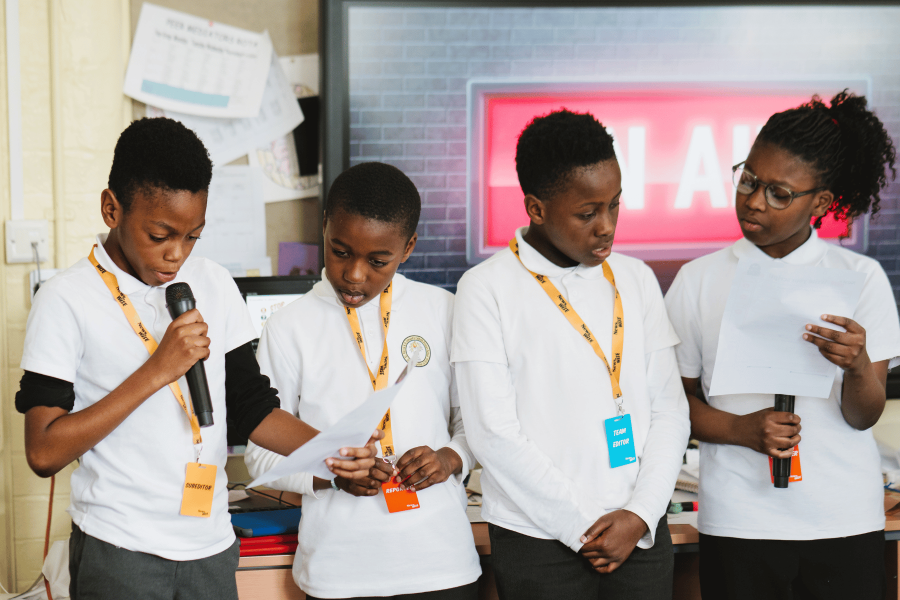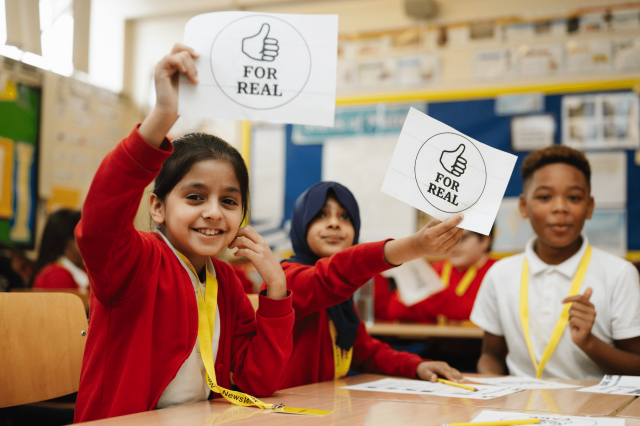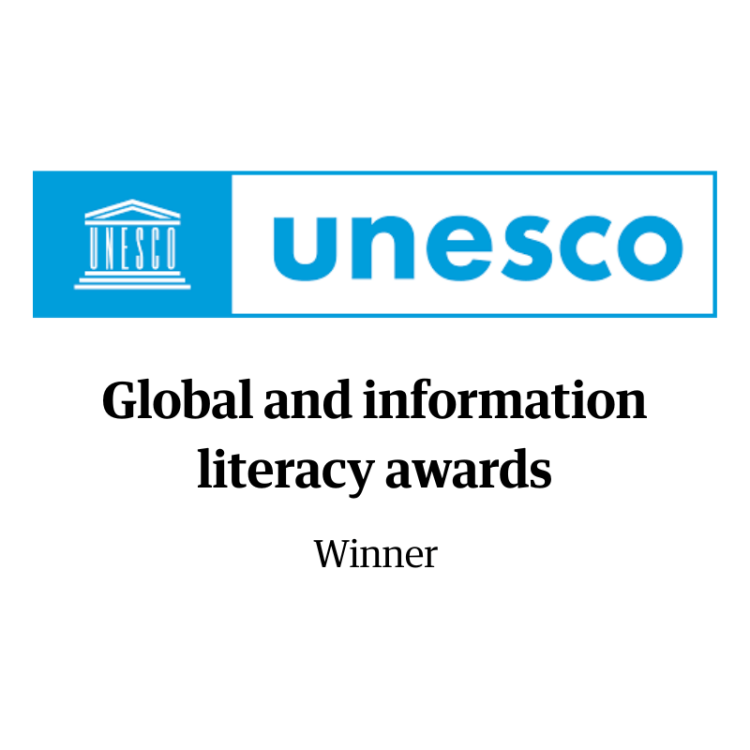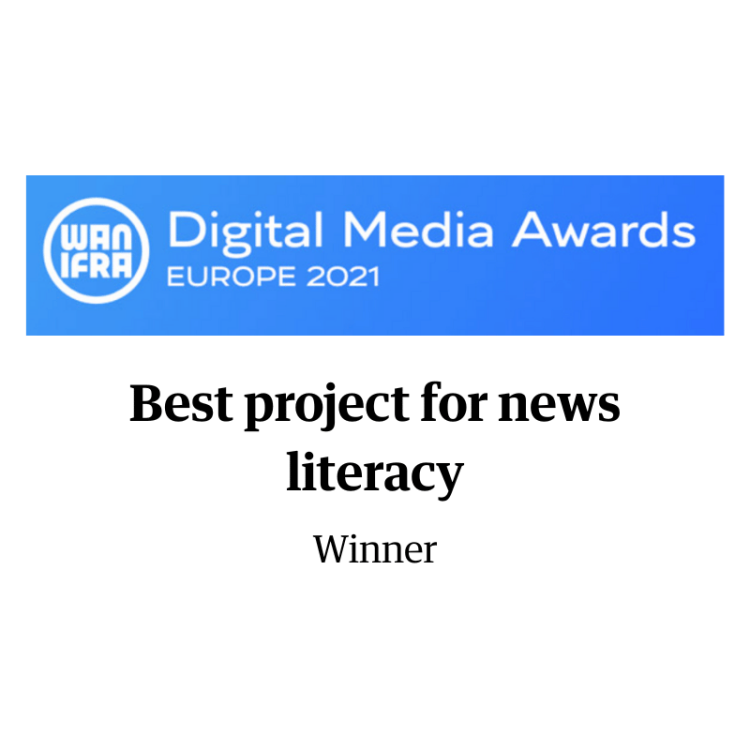

Only 11% of children aged 12-17 are able to correctly identify a genuine social media post, without making a mistake (1). Mis and disinformation is infiltrating every part of children’s lives, from unrealistic beauty standards to critical health advice about medicine and vaccines. Misleading content can even normalise and fuel misogyny, climate change denial, and racism.
Meanwhile, generative AI has the potential to be a positive force, but it is also making fake content more sophisticated and widespread. Children are twice as likely as adults to have used AI tools and 76% of parents worry about generative AI’s impact on their child’s critical thinking skills (2).
With your support, we can reach more young people, giving them the skills and confidence to safely navigate the world of news.
We turn classrooms into newsrooms, produce lesson plans and train educators and families so young people can engage critically with news and information and distinguish fact from fiction. We prioritise schools in disadvantaged communities because we know that those experiencing greater levels of inequality may not have access to the extracurricular activities that help build critical thinking.
Training and workshops for children and young people in person, online, and in our classroom located at the heart of Guardian newsroom.
Free curriculum-linked resources and lesson plans tailored for teachers, librarians, youth workers and SEND settings.
Peer learning through our network of young ‘Media Literacy Ambassadors’.
School visits from journalists.
Engaging activities for families to build media literacy together.

To date, over 180,000 people across the UK have participated in our news and media literacy programmes. This number continues to grow as we bring our programmes to Europe. Independent evaluation of our programmes has shown that children become (3):
More resilient to false information.
Stronger writers. Teachers report year after year that taking part in our programme increases young people’s writing skills.
More likely to engage with their community, volunteer and help others.
Better at presenting and communicating. 75% of our young media literacy ambassadors improved their presentation and communication skills in addition to improving critical thinking in relation to news.
Mis and disinformation, online conspiracy theories and declining trust in journalism are putting young people at risk like never before. The need for news and media literacy education has never been more urgent. Our programmes are ready to scale, but the demand for our work outstrips our available resources to deliver.
With your support, we could:







